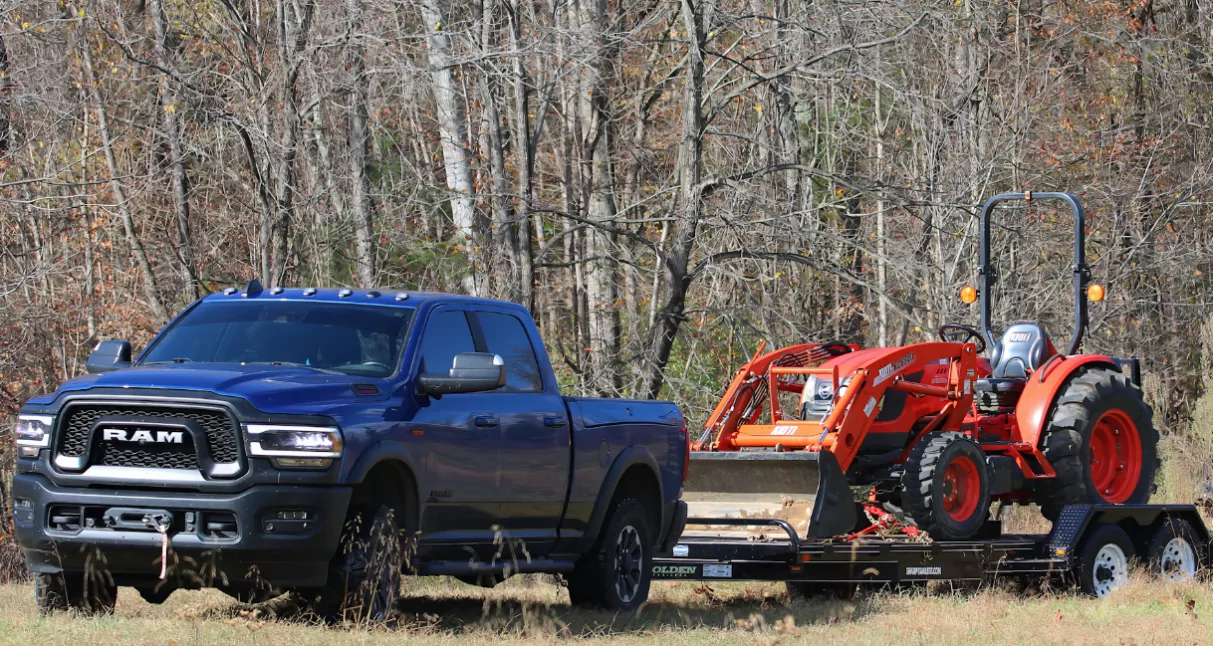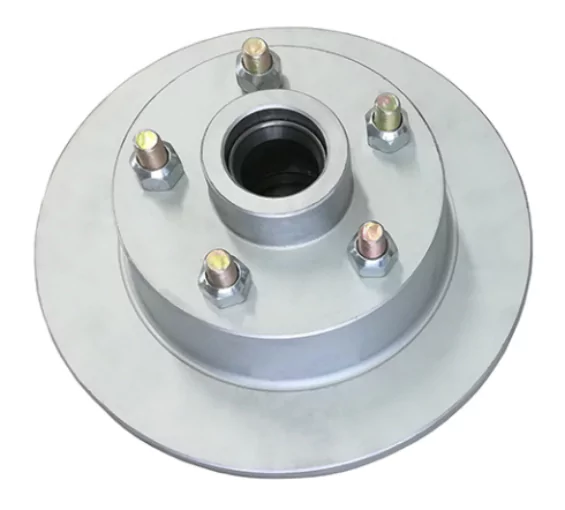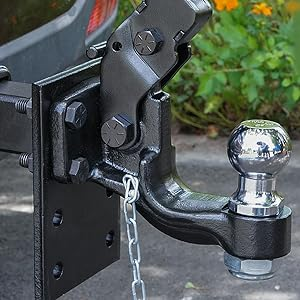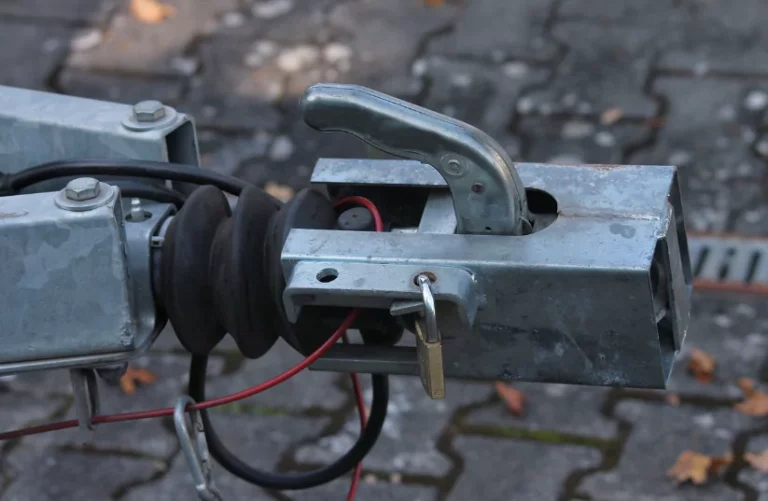The importance of trailer hubs in the realm of load distribution and safety cannot be overstated. Trailer hubs serve critical roles in supporting the weight of the load being towed, ensuring stability during transit, and significantly affecting the overall safety of the vehicle. Understanding the various components, types, and mechanics of trailer hubs is essential for manufacturers and users alike, especially in the context of maintaining optimal performance and compliance with safety standards.
Trailer Hubs
What are Trailer Hubs?
Trailer hubs are mechanical devices that house the wheel bearings and are mounted on the axle of a trailer. They allow the wheels to rotate freely while securely holding them in place. Essentially, the trailer hub is a pivotal part of the hub assembly, which provides a connection point for the wheels and supports the vehicle’s load. A properly functioning trailer hub is crucial for safe towing, contributing to both load distribution and the overall stability of the vehicle and trailer combination.
Components of a Trailer Hub
Bearings
The bearings within a trailer hub are essential for minimizing friction between the hub and the axle, allowing for smooth wheel rotation. There are generally two types of bearings found in trailer hubs: standard and heavy-duty, with the latter offering increased load-carrying ability and durability for demanding applications. Regular maintenance of bearings is vital to prevent failures that could compromise vehicle safety and performance.
Lubrication Systems
An effective lubrication system is key to the longevity and performance of a trailer hub. Proper lubrication reduces wear on the bearings and helps maintain the integrity of the hub assembly. There are different lubrication methods, including grease-filled or oil-lubricated systems, which vary based on the intended application and the load expected to be carried by the trailer.
Types of Trailer Hubs
Lazy Hubs
Lazy hubs are a simpler type of hub system typically used for lighter trailers or less demanding applications. They are cost-effective and easy to install. However, their load capacity and performance may not meet the needs of all users, particularly for heavier duties.
Let’s consider lazy hubs 4 stud 100.0 mm from Go Trailer as an illustrative example. It features a 4-stud design with a pitch circle diameter (PCD) of 100.0mm and a capacity of 1000 kg. These lazy hub kits are comprehensive, including the hub, bearings, a seal, and a dust cap. Crafted from cast iron, these lazy hubs boast corrosion resistance, exceptional strength, and remarkable durability. Trailer lazy hubs play a pivotal role in enhancing the efficiency of trailer operations, making them an indispensable element in the transportation industry, particularly for trailers involved in logistics and freight handling. Acting as a crucial juncture between the trailer and the towing vehicle, these hubs facilitate seamless maneuverability and heightened stability throughout the transportation process.
Drum Hubs
Drum hubs are paired with braking systems, providing an effective solution for load management through integrated brakes. The design features a drum system that enables greater stopping power compared to lazy hubs. This makes drum hubs a preferred choice in situations requiring more robust braking performance.
For instance, Go Trailer provides several types of drum hubs. The drum hub 5 stud 120.0mm is commonly used in various applications, including commercial trailers, recreational vehicles, and heavy-duty trucks. They play a vital role in the effective functioning of drum brakes, allowing for smoother deceleration and improved stopping power. Maintenance is essential for the longevity of trailer drum hubs. Regular inspections should be conducted to check for wear and tear, particularly on the bearings and seals. Lubrication should be applied as needed, and any signs of rust or damage should be addressed promptly.
Disc Hubs
Disc hubs represent a more advanced design, incorporating disc brakes that allow for efficient heat dissipation and improved stopping power. The disc hub system is generally preferred for high-performance trailers and is often seen in applications where safety is paramount, such as in commercial transporting or heavy loads.
Take Go Trailer’s disc hub 5 stud 150.0mm as an example. This disc hub features a 5-stud design with a 150.0mm diameter, capable of supporting up to 1000 kg. It is compatible with both mechanical and hydraulic brake systems for trailers. Our comprehensive disc hub kits encompass the hub itself, along with grease seals, grease caps, and lug nuts for easy installation. The range of disc hubs we offer boasts capacities ranging from 1000KG to 2000KG per pair. Disc brakes excel in their simplicity, with fewer moving parts, which contribute to their efficient heat dissipation. Additionally, their self-adjusting calipers ensure 100% braking effectiveness in both forward and reverse directions, maintaining braking power even during backup operations.
Selecting the Right Trailer Hub: Go Trailer
Why Choose Go Trailer
When it comes to selecting the right trailer hub, Go Trailer stands out as a professional manufacturer specializing in high-quality trailer parts. With over 15 years of experience in the trailer industry, Go Trailer offers a comprehensive range of products designed to meet various customer needs. Choosing Go Trailer means working directly with experienced professionals who understand the importance of quality, safety, and reliability.
Customization Service
Go Trailer provides customization services tailored to specific requirements. This ensures that customers receive products best suited for their unique applications, whether it’s for lightweight trailers or heavy-duty hauling. By collaborating closely with clients, Go Trailer ensures that the specifications, such as load capacity and design, meet the application’s demands, enhancing user safety and satisfaction.
The Role of Trailer Hubs in Load Distribution
Mechanics of Load Distribution
Trailer hubs play a critical role in how loads are distributed across the trailer system. Properly engineered hubs help maintain even load distribution, reducing the risk of tire wear and enhancing the control of the towing vehicle. Thus, they contribute to overall efficiency during transport, minimizing the chances of mechanical failures due to uneven weight distribution.
The Impact on Vehicle Stability
The stability of a trailer during transport is largely influenced by its hubs. Well-functioning trailer hubs ensure that the wheels rotate evenly and can maintain traction with the road surface, which is crucial for safe towing. Any malfunction or imbalance in the hubs can lead to swaying or instability, significantly affecting the safety of both the trailer and towing vehicle.
Hub Ratings and Specifications
It is essential to adhere to the hub ratings and specifications as these are designed to ensure optimal performance. Each hub has a defined load rating that reflects the maximum weight it can safely support. Selecting a hub with appropriate ratings not only assures safety but also extends the lifespan of the hub and related components, reducing maintenance costs in the long term.
In conclusion, understanding the crucial role of trailer hubs in load distribution and safety is paramount for users and manufacturers alike. With a focus on quality and the inherent engineering involved, selecting the right components can lead to a more efficient and safer towing experience. By partnering with authoritative manufacturers like Go Trailer, stakeholders can ensure adherence to these vital principles, fostering a reliable and robust trailer performance.
Ensuring Safety with Proper Hub Functionality
Common Hub Failures and Their Causes
The importance of properly functioning trailer hubs cannot be understated, as even minor failures can lead to significant safety risks during transit. Common hub failures often include bearing wear, seal failure, and misalignment. Bearing wear typically results from insufficient lubrication or overloading, leading to increased friction that can cause overheating. Seal failures allow moisture and contaminants to enter the hub, compromising lubrication integrity and accelerating wear and tear. Misalignment can occur due to improper installation or trauma from rough road conditions, leading to uneven loading and excessive wear on tires and suspension components.
Recognizing the signs of hub failure early—such as unusual noises, increased heat, or visible wear—can prevent escalation into more severe issues. Regular maintenance, including inspections during pre-trip checks, can help identify these problems before they become hazardous. Users are encouraged to perform diligence with lubrication schedules according to the manufacturer’s recommendations to ensure that the bearings and other components within the hubs operate seamlessly. Ultimately, a proactive approach to hub maintenance greatly enhances both safety and trailer longevity.
Pre-Trip Inspection Checklist for Trailer Hubs
Implementing a thorough pre-trip inspection checklist for trailer hubs is essential to guarantee safe towing. Key items on the checklist should include checking hub lubrication levels, inspecting for any signs of wear or damage to the seals and bearings, and assessing wheel integrity for any cracks or deformation. Furthermore, the alignment and mounting of the hubs should be verified to ensure proper connection to the axle.
Operators must also evaluate wheel bearing adjustment, ensuring that the bearings are not overly tight or too loose, both situations which can lead to premature failure. Additionally, examining the brake systems associated with drum or disc hubs can help ensure that adequate stopping power is available during operation. Incorporating this checklist into standard operating procedure not only aids in proactive maintenance but also fosters a safety-conscious culture amongst users, thereby enhancing overall operational efficiency.
Practical Insights from Industry Experts
Industry experts consistently underscore the significance of choosing the right trailer hubs tailored to specific operational demands. Speaking from experience, many professionals recommend investing in hubs that not only meet but exceed the expected load ratings. This approach not only enhances safety but also provides a buffer against unexpected operational conditions that may arise during transit.
Additionally, experts emphasize the importance of maintaining open communication with manufacturers such as Go Trailer, who can provide valuable insights into product specifications and customization options. By engaging with knowledgeable suppliers, users can make informed decisions, ensuring that their trailer hubs not only perform optimally but are also well-suited for their unique applications.
Lastly, training for operators in hub maintenance and management is highly beneficial. This investment cultivates a deeper understanding of the system, leading to more diligent inspections and better overall care. By merging extensive product knowledge with practical expertise, stakeholders can significantly enhance the safety and performance of trailer systems for the long haul.
In summary, the continual evolution in trailer hub technology and maintenance practices presents both challenges and opportunities for users and manufacturers alike. With a keen focus on innovation, rigorous inspections, and strategic partnerships, stakeholders can navigate the complexities of load distribution and safety, promoting an enhanced towing experience well into the future.







